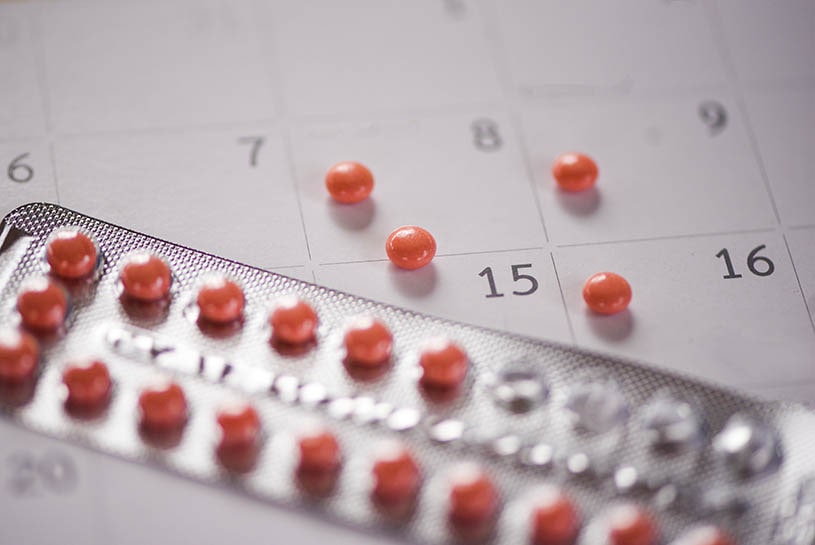
Dexmethylphenidate, under the brand name Focalin, is a stimulant medication and its main use is for the treatment of Attention Deficit Hyperactivity Disorder or ADHD. Another use of this medication is for the management of narcolepsy. This drug causes changes in the brain’s chemical milieu, so that abruptly quitting or stopping Focalin intake could trigger Focalin withdrawal.
Table Of Contents:
According to a study, ADHD medications such as Dexmethylphenidate cause withdrawal symptoms which may lead to addiction when the drug is suddenly discontinued. Even though the effects are rarely fatal, they could cause severe discomfort. Dexmethylphenidate can be safe and therapeutic when used as prescribed but it carries dangers to the health when it is abused especially in large doses.
In this article, information about Focalin withdrawal such as signs and symptoms, timeline, factors affecting the development of withdrawal and how to prevent them, and treatment or detox process will be provided.
Focalin Withdrawal: Overview
Dexmethylphenidate is a prescription drug that is classified as a schedule II controlled substance because of its strong abuse and addiction potential. Like the other stimulant drugs, this medicine affects the neurotransmitters in the brain and this makes it potential for dependence and tolerance. Consequently, when stopping Focalin usage, the brain struggles to cope with the sudden unavailability of these neurotransmitters, producing termination effects.
According to a study, one reason why patients with ADHD stop using the medication is that patients experience unfavorable adverse effects. Additionally, when the dose is reduced, Focalin withdrawal may also occur.
Signs and Symptoms of Focalin Withdrawal
The severity of Focalin withdrawal symptoms depends on certain factors, including how long someone has been using it, how much the individual takes regularly, what is the form of the drug used, and what other medications are being taken. Additionally, there is a plain Dexmethylphenidate and a Dexmethylphenidate XR, and the withdrawal symptoms of both of the drugs are the same.

The Common Psychological Symptoms After Stopping Focalin Are:
- Sleep disturbances
- Depression
- Apathy
- Changes in blood pressure and heart rate
- Anxiety and restlessness
Focalin withdrawal symptoms begin when the medication is no longer present in the body or when the level of this drug drops than what the body expects to have.
Aside From the Psychological Symptoms, There Are Also Physical Symptoms After Stopping ADHD Medication Such as the Following:
- Grinding of teeth
- Sweating
- Severe weakness and fatigue
- Seizures
- Low energy
According to a study, Focalin withdrawal may unmask symptoms of an underlying disorder. It is important to understand that aside from the health dangers these symptoms may cause, psychosocial changes may also occur in patients resulting in fear to stop the drugs because of the discomforting withdrawal symptoms.
Withdrawal Timeline of Dexmethylphenidate
The timeline for Focalin and Focalin XR withdrawal symptoms depends on the duration, frequency, method of use, and dosage of the drug that was used. Also, drugs or substances that may interact with this medicine such as alcohol, and the physical or mental health of a patient will also depend on it. However, Focalin or Focalin XR withdrawal symptoms generally last for one to three weeks. Below Is an Information About the Duration of the Withdrawal Symptoms:
| Time | Symptoms |
| 0 to 24 hours | The patient will start to feel anxious and irritable after the last dose. Additionally, cravings will start to be felt and will increase intensively. |
| Day 1 to 2 | During this period, the individual typically experiences mild symptoms such as nausea, fatigue, mood changes, and altered heart rate. The restlessness and irritability of the patient will become pronounced and extreme. |
| Days 3 to 7 | Three to seven days after the last dose of the drug, the individual experiences depression, severe fatigue and exhaustion, irritability, increased appetite, and cravings, sleep disturbances, and severe anxiety. This timeline is where the symptoms are likely to peak and during these days, lethargy and paranoia might appear. |
| Days 7 to 14 | During this period, the symptoms begin to improve slowly. However, most individuals may still experience sleep disturbances and depression will likely intensify. |
| Days 14 to 21 | During this period, the symptoms have generally improved, but most individuals will still experience depression. |
Since there is a different form of the drug which is the extended-release form (XR), it is important to understand that the timeline for the Focalin XR withdrawal symptoms is the same as for the plain one. The only difference is that the effects of Dexmethylphenidate plain and XR form lasts for 4 hours and 12 hours, respectively. Both Dexmethylphenidate plain and its extended-release should be given cautiously to patients especially those with a history of drug abuse. Moreover, careful supervision and help is required during termination from abusive use of this drug or any other drugs, since severe depression may occur.
Factors Affecting The Development of Dexmethylphenidate Dependence And Withdrawal
Stopping ADHD medication usage may lead to dependence which will eventually allow for uncomfortable symptoms to appear. Some patients are prescribed with Dexmethylphenidate to treat ADHD but when this medication is shared with other individuals such as friends or relatives, which can be considered as an abuse, dependence and withdrawal may occur.
Other Factors Affecting the Development of These Two Are the Following:
- Age – drug addiction typically begins at a younger age and higher rates of addiction are seen in adolescents and young adults. If a patient is taking this drug at a young age, there is a possibility for the two events to occur.
- Dose – the frequency and strength of the drug also affects the development of the two conditions. Taking more than the prescribed dose or inappropriately using the medication is an abuse and this is also a factor.
- Route of administration – taking the medication in a different route or way other than the prescribed.
- Interactions with other medications – mixing Dexmethylphenidate with other drugs and alcohol may enhance the effects of the former which can lead to dependence and withdrawal.
Drug abuse or misuse may escalate to tolerance and dependence. So, when a patient tries to stop using the medication because of the effects of drug dependence, withdrawal, which is dangerous to one’s health, may occur. For these reasons, a proper Focalin withdrawal process must be done under control of a medical professional, and information about this will be presented in the next sections of this article.
Prevention of Focalin Withdrawal And Tapering Off Dexmethylphenidate Safely
The best way to prevent Focalin withdrawal symptoms is to reduce the dose gradually, adhering to the doctor’s instructions. Stopping ADHD medication usage like Dexmethylphenidate or any other stimulant medications will send the brain into a depressive mode, as the stimulant neurotransmitters – dopamine and norepinephrine – are suddenly depleted. Tapering the dose bides time for the brain to produce its dopamine and norepinephrine, thereby producing minimal Focalin and Focalin XR withdrawal symptoms as one weans off the drug.

Weaning off Dexmethylphenidate is best done in a detox center, where there are professionals who are trained in addiction medicine and detoxification. These professionals will help the individual taper the dosage of dexmethylphenidate and choose an alternative to Dexmethylphenidate if needed. The patient will be closely monitored for compliance and will get help and treatment during the termination in the use of the drug and management of the detox symptoms when they present themselves.
What is the Detox Process for Dexmethylphenidate?
Dexmethylphenidate detox is best done by health professionals who will instruct the patient on the Dexmethylphenidate dosage to take per time. The health professional will instruct the patient to take lower and lower doses of Dexmethylphenidate until the drug can be safely discontinued. This can also be done in the detox facility where the individual will be closely monitored.
In addition to controlling the side effects of Dexmethylphenidate during the detox process, for example, after heavy use, Dexmethylphenidate detoxification also involves the management and treatment of the symptoms that ensue as a result of tapering the dosage.
Do not attempt dexmethylphenidate detox without medical guidance. It may be futile or even lead to a relapse. Healthcare professionals can help determine how much of the dose one should reduce per time to ensure a safe and comfortable detox.
After completing the detox program, an individual is transferred for addiction therapy to keep them away from using Dexmethylphenidate. Hence, detoxification aims to get someone off the drug while minimizing Focalin withdrawal symptoms. This should be done under close medical supervision by professionals in detox centers or drug rehabs. Attempting to do this by oneself may be challenging, and the symptoms may be overwhelming enough to make the detox process and treatment unsuccessful.
Hope Without Commitment
Find the best treatment options. Call our free and confidential helpline
Most private insurances accepted
Find Drug Rehabilitation Centers Near You Anywhere In the US
Addiction Resource team has compiled an extensive list of the top drug rehabilitation facilities around the country. Use our locator tool to find the best centers near you.
Page Sources
- Brams, M., Silva, R., Straughn, A., Mitzel, H., Vince, B., Kelsh, D., & Schaffer, S. (2020, October). Comparative Bioavailability and Safety of a Novel Trimodal Dexmethylphenidate Tablet in ADHD Patients. In Journal of The American Academy Of Child And Adolescent Psychiatry (Vol. 59, No. 10, Pp. S150-S151). Ste 800, 230 Park Ave, New York, Ny 10169 Usa: Elsevier Science Inc./li>
- Maneeton, N., Maneeton, B., Woottiluk, P., Suttajit, S., Likhitsathian, S., Charnsil, C., & Srisurapanont, M. (2015). Comparative efficacy, acceptability, and tolerability of dexmethylphenidate versus placebo in child and adolescent ADHD: a meta-analysis of randomized controlled trials. Neuropsychiatric disease and treatment, 11, 2943./li>
- NSDUH Annual National Report | CBHSQ Data. (2018, September 14). Retrieved from https://www.samhsa.gov/data/report/2017-nsduh-annual-national-report/li>
- Prescription Stimulants (Amphetamines). (2021, June 25). Retrieved from https://teens.drugabuse.gov/drug-facts/prescription-stimulant-medications-amphetamines/li>
- Swaiman, K. F., Ashwal, S., Ferriero, D. M., Schor, N. F., Finkel, R. S., Gropman, A. L., ... & Shevell, M. (2017). Swaiman's Pediatric Neurology E-Book: Principles and Practice. Elsevier Health Sciences./li>
- World Health Organization. (2009). Training manual for clinical guidelines for withdrawal management and treatment of drug dependence in closed settings. Manila: WHO Regional Office for the Western Pacific./li>
- Yanofski, J. (2011). The dopamine dilemma—Part II: Could stimulants cause tolerance, dependence, and paradoxical decompensation?. Innovations in clinical neuroscience, 8(1), 47.


 Reviewed by:
Reviewed by:  Written by:
Written by: 

 FindTreatment.gov
FindTreatment.gov